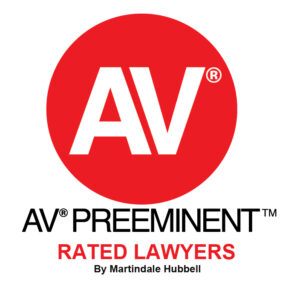Health Care License or Overpayment Defense in Nevada
It is so important to proceed with caution if you are a medical provider that has received notice of a complaint filed against you with the Nevada State Board of Medical Examiners. It is equally important to understand your rights and responsibilities if you receive a “demand” letter from CMS or a letter from a carrier or the Attorney General alleging Medicare or Medicaid overpayment in Nevada.
Receiving a notice of complaint or “official” letter can be alarming. Frequently, those who receive them want to clear up the situation as quickly as possible. However, if you respond without first speaking with legal counsel, you could inadvertently waive important rights and compromise your defense.
Board of Medical Examiners Investigations
Investigations by the Nevada State Board of Medical Examiners deal with criminal offenses or medical-related misconduct. An investigation can lead to severe penalties, including fines, suspension or revocation of your license to practice, or conditions being placed on said license. Investigations are a matter of public record and can therefore affect your professional reputation.
Any investigation should be taken very seriously and navigated with care. Cases can often be resolved at the investigation stage, especially with the help of skilled legal counsel. Suppose you are required to attend a hearing before the Nevada State Board of Medical Examiners. In that case, it is essential to have an attorney who is experienced in helping medical professionals in Nevada win licensure cases. Let Whitehead & Burnett’s team of skilled medical defense attorneys protect your interests, your license, and your reputation. We will be there with you every step of the way to ensure the best possible outcome for your case before the Board of Medical Examiners.
Inquiries & Investigations by CMS for Medicare and Medicaid Overbilling
To navigate an inquiry or investigation by the Center for Medicare and Medicaid Services (CMS) regarding Medicare overbilling, fraud, and abuse, you need legal counsel with thorough knowledge of how to defend your practice or facility. You will need to understand the potential penalties and possible resolutions. These are serious cases that can lead to Medicare and Medicaid exclusion, criminal jail time, and financial penalties involving hundreds of thousands of dollars or more.
What is Medicare Overpayment?
A Medicare overpayment is a payment that CMS alleges was more than what was rightly due under the Medicare Act and applicable regulations. Once CMS identifies an overpayment, it is considered a debt owed by the provider to the federal government. The overpayment recovery process begins with a notice of overpayment and a “demand” letter.
If payment is not received in full within 40 calendar days of the first demand letter’s date, the Medicare contractor begins recoupment. During recoupment, CMS recovers the overpayment from current Medicare payments due and future claims until the overpayment is recovered in full. All Medicare payment ceases until the overpayment is satisfied. You may avoid recoupment if you act quickly to assert your administrative appeals rights.
Appeal Rights for Providers
The Medicare and Social Security Acts provide a process for appeals that a provider must use if it disagrees with a determination:
- Redetermination: A provider can request a redetermination within 120 days of the initial notice. The provider can prevent recoupment if the contractor receives the redetermination request within 30 days of the “demand” letter. After that, Medicare will cease recoupment efforts, but Medicare may not refund recoupment already taken until a provider establishes that the alleged overpayment was incorrect. During redetermination, the contractor conducts an independent review and will affirm or reverse, in whole or in part, the initial determination. Should the contractor affirm the original determination, recoupment starts on the 61st day after the decision. Medicare will again stop recoupment if a provider files for reconsideration.
- Reconsideration: A party dissatisfied with the redetermination may request reconsideration by a Qualified Independent Contractor (QIC) within 180 days. A reconsideration consists of an independent, on the record review. The contractor must cease recoupment upon receipt of a request for reconsideration and is prohibited from initiating recoupment until the QIC has issued a decision.
- Appeal to an Administrative Law Judge: A provider may appeal an adverse reconsideration to an administrative law judge, who holds an evidentiary hearing where the provider may present testimony. A party must file its request for an administrative hearing, in writing, within 60 days of an unfavorable reconsideration. CMS or its contractors may participate in the hearing. The judge considers all the issues brought out in the initial determination, redetermination, or reconsideration and any “new issues” if they are permissible and could impact the case’s claims.
- Medicare Appeals Council Review: Parties may further request the Medicare Appeals Council (MAC) to review the judge’s decision. The MAC conducts a de novo review of the judge’s decision and may adopt, modify, or reverse the decision or remand the case for further proceedings.
- Civil Action in Federal District Court: Finally, a party dissatisfied with the secretary’s final decision may seek judicial review by filing a civil action in federal district court.
Employment & Partnership Agreements and the Stark Law
The Stark Law, or self-referral law, prohibits physicians from referring patients for services paid by Medicare and Medicaid to another healthcare entity in which they or their immediate family have a financial interest. It is designed to combat fraud, waste, and abuse in our federal healthcare programs.
Violations, even accidental, can result in significant penalties, including fines up to $15,000 per billed service and three times the amount of overpayment. Offenses that are deemed intentional can result in exclusion from Medicare and Medicaid.
Given these significant penalties, healthcare professionals need to ensure compliance. This includes evaluating employee compensation agreements, contracts, services, and billing practices to ensure they do not violate the Stark Law.
Stark Law Exceptions
The Stark Law provides several exceptions that can be complex and should thus be reviewed by legal counsel. Providers must meet all requirements of an exception as defined under the Stark Law. Exceptions vary depending on whether relationships are compensation arrangements or an investment or ownership interest.
Stark exceptions almost always require a written agreement for a duration of one year or more between referring physicians and providers. Compensation based on volume or value of a physician’s referrals is explicitly prohibited. Many Stark exceptions require payment to be “commercially reasonable.” Things like overcharging for equipment leases or paying physicians for questionable consulting services are red flags. Several Stark exceptions, including physician and in-office ancillary services, require a medical practice to meet all elements of the statutory definition of group practice, including regulations governing the structure of a group (partnership or corporation, for example).
Do not leave this important area of Medicare and Medicaid compliance to chance. Merely using a template contract is not enough to protect your practice or your physician employees. The skilled, experienced team at Whitehead & Burnett can help ensure your practice or medical services business avoids unnecessary liability.
The Anti-Kickback Statute
The Anti-Kickback Statute is a federal criminal law that makes it illegal to willfully and knowingly exchange payment, or anything of value, for referrals of federal healthcare program business, including services, drugs, and medical supplies and equipment under Medicare or Medicaid or military members or families.
Both those who pay or offer payment and those who receive or solicit payment can be prosecuted. The Anti-Kickback Statute can carry steep criminal and civil penalties, including:
- Criminal fines up to $25,000 per violation
- Up to 5 years in federal prison for a single violation
- Civil penalties up to $50,000 plus three times the government’s damages
- Exclusion from federal healthcare programs
- Loss of medical license
Given these severe penalties, providers must ensure they are structuring professional relationships to comply with the law. They must also take immediate action to face audits, investigations, subpoenas, or Civil Investigative Demands.
Anti-Kickback Statute Exceptions
The AKS helps providers with good intent avoid violation through “safe harbor” protections: specific exempt arrangements. Business practices that can be covered under safe harbors include personal services and management contracts, payments for leasing equipment or renting office space; investments; payments for recruitment; and employee compensation.
Exempt arrangements must meet specific criteria. For example, a relationship between a pharmacy and a physician who is paid to publicly speak about a product may fall under “safe harbor” if a written agreement of at least one year signed by both parties covers all services and sets compensation at fair market value without taking into account volume or value of referrals. Requirements for safe harbors can be complicated, and providers should speak with an experienced attorney to ensure compliance.
Enforcement
While any provider or healthcare business owners can be prosecuted, added scrutiny is given to arrangements involving compounding pharmacies, individual physicians, imaging or surgical centers, laboratories, medical device companies, and home care providers.
As with any criminal case, the burden to proof falls on the government. It is an intent-based law, meaning to be convicted, individuals must have acted knowingly and willfully. As such, showing that the purpose of the payment or offer was not to induce referrals and that parties demonstrated clear good intent are essential.
Call Whitehead & Burnett Today
Medical professionals often ask, can’t I represent myself in these proceedings? If I have done nothing wrong or have nothing to hide, can’t I just clear this up with a phone call or letter? You can represent yourself, but we seriously recommend against it. These can be complex cases that can carry serious penalties. A government investigator’s job is not to protect your interests; they are unlikely to present facts in a light favorable to you. You owe it to yourself to have an experienced, skilled advocate by your side, helping you win the best possible resolution. At Whitehead & Burnett, our skilled health care law team has years of experience helping medical professionals throughout Las Vegas and the state of Nevada to defend their careers, their practices, and their good name. Discussing your case with one of our experienced Las Vegas attorneys at the outset can save you untold time and money (and headaches). Let us help you navigate Nevada healthcare law and protect your practice and your employees, so you can focus on keeping your practice on track. Call us today at 702-267-6500 to speak directly with an attorney.



